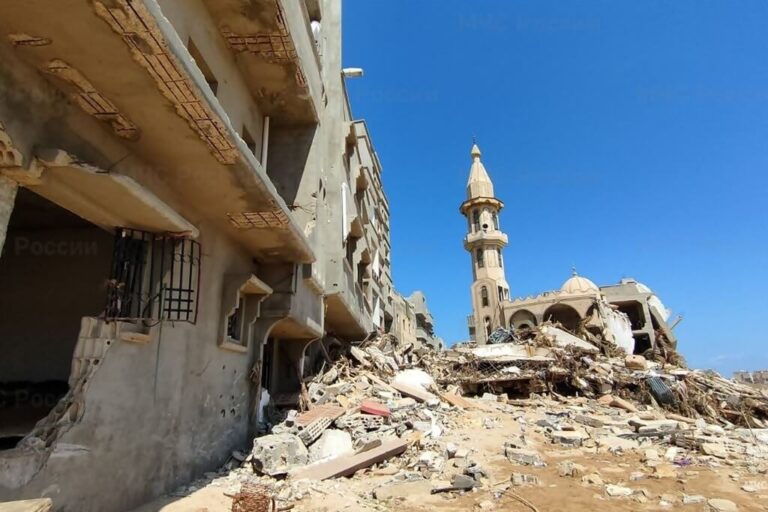HUMANITARIAN CRISIS FRONT LINES

Humanity is facing devastating challenges on multiple fronts. Coups in the Sahel region, civil conflict in Sudan and attacks in Burkina Faso, the Democratic Republic of Congo, Ethiopia, Mali, Nigeria and Somalia have uprooted millions of Africans. The violence and political instability in the Gulf of Mexico, Haiti and Venezuela threaten regional stability. The war in Ukraine continues to cause huge suffering. And now we have the tragedy in Gaza and Israel where civilians are bearing the brunt of what have been designated war crimes. These events converge to create mass displacement of people, unimaginable psychological trauma and physical distress.
Natural disasters on the rise
Beyond conflict zones, the front lines of crises extend to natural disasters, which are occurring at increasing frequency – on average more than one per day globally.
While our attention is drawn to the major events like the earthquakes in Turkey, Morocco and Nepal and the floods in Libya which have caused major losses of life, this year has been the hottest on record. The impact of climate change is being experienced everywhere, including floods in Brazil, Cameroon, Yemen, Myanmar, Europe and North America. The risks are no longer remote. We are learning that everyone can be impacted, even in the wealthy, secure, and relatively resilient Global North.
Humanitarian sector challenges
The humanitarian ‘industry’ itself confronts its own frontlines, with global responses falling short and generating organizational tension and conflict. These more subtle frontlines were in clear evidence at the October International Aid and Development Exhibition (AidEx) in Geneva. A funding shortfall persists by £20 billion and that gap is widening as governments balance the need for funding with servicing conflicts, while the general population is squeezed by inflation.
Unpacking the many excellent conference sessions confirmed that the Catalyst 2030 group working on new models for disaster management is moving in the right direction. Our guiding principle is succinct: “Make local central”. The humanitarian sector refers to it as ‘localization’ and ‘engaging local actors’. However, we believe localization suggests fitting the right plug to the hole. The word ‘actors’ also diminishes the significance of those on the ground.
At its core, this perspective recognizes that not enough of the cash (perhaps as little as 40%) reaches where it is most needed, with the rest being used to sustain the system. Strengthening people on the ground who intimately know their needs is more efficient than helicoptering in so-called ‘experts’. There is a track record of these experts treating local people as incapable victims rather than active participants in their own recovery.
Make local central
Our mantra is simple: Make local central. Transforming the current system requires a systemic change – the creation of a new model – which aligns with the vision of Catalyst Now. Our mission is to put social innovation at the heart of attaining the SDGs.
At AidEx there was much talk of new models and the ramifications of changes. The frontlines of this transformation are the requirements put in place by funders for impact measurement and governance. Unfortunately, few small, local organisations have the bandwidth or skills to contend with the bureaucracy that reinforces exclusion. While it was encouraging that people were talking about these issues, concrete solutions and pathways forward were not in evidence.
In summary, we face escalating demand, a staggering funding gap (£20bn), huge waste in expenditure and demeaning operational practices. Despite widespread recognition of a new model, there is massive inertia around the status quo.
Catalyst Now is a community enabler
Introducing Catalyst Now to people at the event provided an eye-opener. The potential for building communities on the ground who are trusted, local, can mobilise support, provide attractive resources and the capacity for the new model were recognised. Few in this mainstream milieu had heard of Catalyst Now. Many ‘got it’ quickly which was encouraging. Catalyst Now must intensify its efforts to connect community-based organisations and major funding agencies. It is a vast marketplace – worth as much as $200 billion per year. As I discovered, conversations create opportunities.
Make local central in disaster management
The Catalyst Now Disasters Group has a comprehensive proposal to develop, implement and test a new innovative mode that ‘makes local central’ and sustainable across the SDGs.
The initial focus is East Africa,. We need to do the work to prove the concept and demonstrate effectiveness. The plan includes a process to bridge the impact and governance challenges identified in the AidEx conference sessions.
Securing substantial funding to kickstart our efforts has proven challenging and slow-moving. The conference provides insights into why. Applications for funding rain down on funding bodies and are brushed aside. The only way to get past that is through personal connections. In the same way as local social innovators succeed because they have built trust, we learned that we will have to do the same with funders and some NGOs working in the emergency/disaster sector. Fortunately, the conference provided a series of opportunities to have deeper conversations and further our objectives.
Collaboration at community level
Finally, the conference and all the conversations underscored that the Aid and Development sector has failed to adopt ‘good management practice’. It is fair to say it is almost wholly non-existent and includes a lack of administration and collaboration skills. The typical requirements of big funders are barely comprehensible and often baffling to all but the most experienced practitioners. “Making local central” necessitates formal collaboration all the way to the farmyard or workshop, rather than to executives working as proxies for the people being helped. There is significant work to do here.
This frontline perspective reaffirms that the Disasters Group is on the right track, fostering valuable connections with individuals who are keen to innovate. We remain committed to our journey, and I conclude this blog with an earnest plea to all Catalyst Now members: Disasters are your concern—please reach out and actively participate. Your support and enthusiasm are crucial.
Alan Braithwaite
disastersibg@catalyst2030.net

